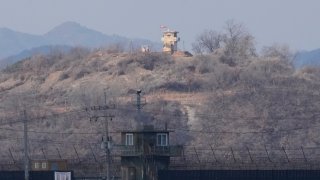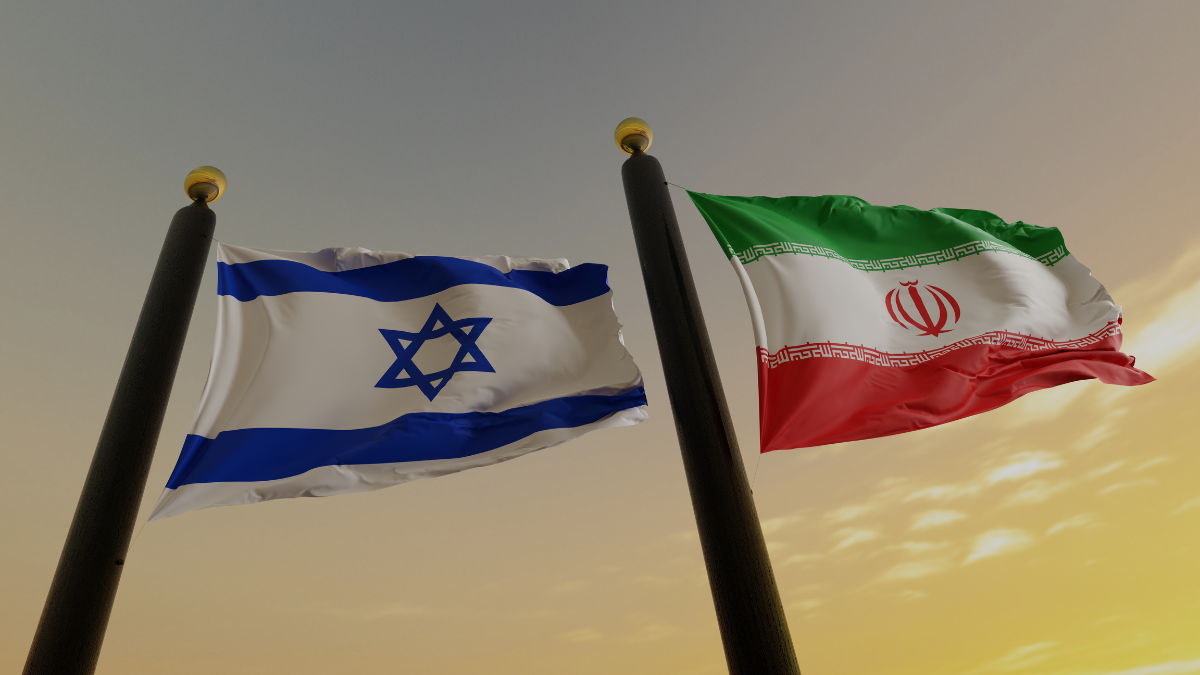
South Korea’s military said North Korea on Saturday fired one suspected long-range missile from its capital toward the sea, a day after it threatened to take strong measures against South Korea and the U.S. over their joint military exercises.
The Joint Chiefs of Staff in Seoul said the ballistic missile was fired at around 5:22 p.m. from an area in Sunan, the site of Pyongyang's international airport. It didn't immediately say where the weapon landed.
North Korea’s Foreign Ministry on Friday threatened with "unprecedently" strong action against its rivals, after South Korea announced a series of planned military exercises with the United States aimed at sharpening their response to the North’s growing threats.
The launch was North Korea's first known testing activity since Jan. 1, when it test-fired a short-range weapon.
We're making it easier for you to find stories that matter with our new newsletter — The 4Front. Sign up here and get news that is important for you to your inbox.
North Korea is coming off a record year in weapons demonstrations with more than 70 ballistic missiles fired, including intercontinental ballistic missiles with potential range to reach the U.S. mainland. The North also conducted a slew of launches it described as simulated nuclear attacks against South Korean and U.S. targets in response to the allies’ resumption of large-scale joint military exercise that had been downsized for years.
North Korea’s missile tests have been punctuated by threats of preemptive nuclear attacks against South Korea or the United States over what it perceives as a broad range of scenarios that put its leadership under threat.
North Korean leader Kim Jong Un doubled down on his nuclear push entering 2023, calling for an “exponential increase” in the country’s nuclear warheads, mass production of battlefield tactical nuclear weapons targeting “enemy” South Korea and the development of more advanced ICBMs.
U.S. & World
The day's top national and international news.
He showcased more than a dozen ICBMs last week during a massive military parade in the capital, Pyongyang. The unprecedented number of missiles underscored a continuation of expansion of his country's military capabilities despite limited resources while negotiations with Washington remain stalemated.
Those missiles included a new system experts say is possibly linked to the North’s stated desire to acquire a solid-fuel ICBM. North Korea’s existing ICBMs, including Hwasong-17s, use liquid propellants that require pre-launch injections and cannot remain fueled for prolonged periods. A solid-fuel alternative would take less time to prepare and is easier to move around on vehicles, providing less opportunity to be spotted.
The North Korean statement on Friday accused Washington and Seoul of planning more than 20 rounds of military drills this year, including large-scale field exercises, and described its rivals as “the arch-criminals deliberately disrupting regional peace and stability.”
The statement came hours after South Korea’s Defense Ministry officials told lawmakers that Seoul and Washington will hold an annual computer-simulated combined training in mid-March. The 11-day training would reflect North Korea’s nuclear threats, as well as unspecified lessons from the Russia-Ukraine war, according to Heo Tae-keun, South Korea’s deputy minister of national defense policy.
Heo said the two countries will also conduct joint field exercises in mid-March that would be bigger than those held in the past few years.
South Korea and the U.S. will also hold a one-day tabletop exercise next week at the Pentagon to sharpen a response to a potential use of nuclear weapons by North Korea.
The exercise, scheduled for Wednesday, would set up possible scenarios where North Korea uses nuclear weapons, explore how to cope with them militarily and formulate crisis management plans, South Korea’s Defense Ministry said.
North Korea has traditionally described U.S.-South Korea military exercises as rehearsals for a potential invasion, while the allies insist that their drills are defensive in nature.



